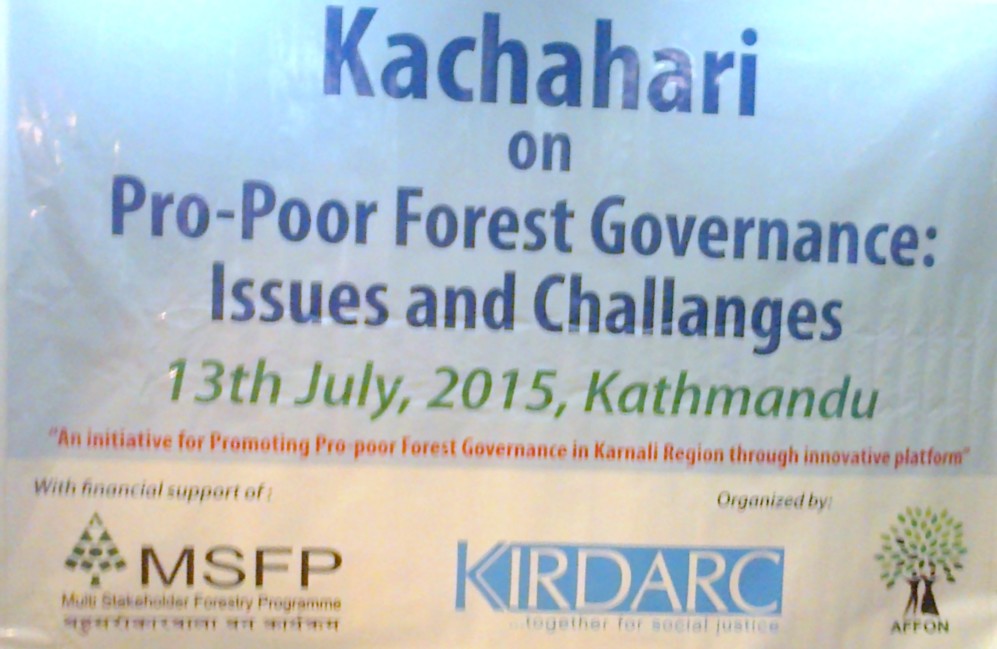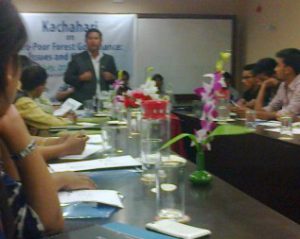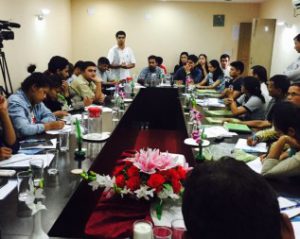Call Us
Mail Us
Address
Kharibot Road, New Baneshwor Ward No. 31, Kathmandu, Nepal

The one day intensive discussion program was jointly organized by AFFON and KIRDARC with the financial support of Multi Stakeholders Forestry Program on 13th of July 2015 at Uddhami Ghar, Buddhanagar, Kathmandu. The event had marked the presence of around 50 participants covering wide range of stakeholders including Federation of Community Forestry Users Nepal (FECOFUN), policy makers, CA Members, Media personnel, government line agencies with Constituent Asse mbly member, Mr. Dik Bahadur Limbu, Chief Guest to the event. The event was chaired by Mr. Khusendra Bahadur Mahat (President of KIRDARC) and facilitated by Mr. Min Bahadur Shahi.
Chief Guest inaugurated the program watering the flower vase.
Following the formal opening speeches were delivered ( including welcome speech by Indira Ghimire-Vice President AFFON, importance of Kachahari Mr. Jog Raj Giri-President AFFON, Speech by Chief Guest as well as other guests) that was followed by paper presentation ( presenters: Dr. Naya Sharma Poudyal, Mr Pitambar Sigdel and Mr Govinda Bahadur Shahi ), open discussion and finally the closing.

Constituent Assembly member, Mr. Dik Bahadur Limbu, Chief Guest to the event during his speech emphasized that the economic aspect of the forest management and forest based enterprises are to go hand in hand. He also accentuated that the existing policy gap resulted with the expertise and knowledge bearers not coming to the forefront to raise the voice.
Mr. Bishu Hari Poudel drew conclusions for the event as:

Good Forest governance should be poor friendly which is attained through better co-ordination at different levels (local, regional and national). Though there are institutional frameworks, there is no real space as different layers do not have equal power. The major challenges of forest governance are differential access, low productivity and sustainability. Also, Forest related Policies and laws are not well defined as Policy/decision makers are within a confined cocoon and the peripheral layers are not being able to influence them. Additionally, outcomes of the action researches are yet to be cashed in. Misconducts among the policy facilitators are a great challenge. Capacitating the available resources is the major issue. Similarly lack of coordination among different stakeholders is leaving the issues unaddressed to meet the expectations. Meanwhile, Capitalisation of the NTFP sources is lagging.
AFFON has greater importance with high responsibility towards bridging the gaps in the existing policy